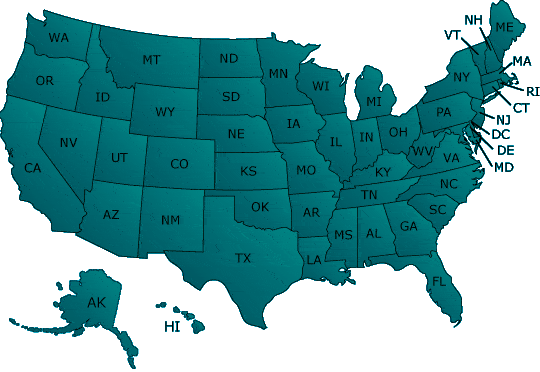Abortion PTSD
The symptoms of abortion PTSD will not necessarily appear at the same time, nor is it likely that any woman will experience the entire list. Some may occur immediately after an abortion and others much later. If you can identify with more than two of these symptoms, it could be that you are experiencing abortion PTSD.
Below are the symptoms that describe abortion PTSD, as described by Dr. Paul and Teri Reisser in their book, Help for the Post-Abortive Woman (now entitled A Solitary Sorrow):
Guilt – A mother’s heart is genetically designed to “protect their child at all costs.” Abortion short-circuits that basic human instinct. That can lead to feelings of guilt. A common guilty reaction after abortion could be that the individuals believes future bad events happen because they “deserve it” for making this choice.
Anxiety (i.e., anxiety attacks). Many individuals state that after their abortion they started feeling tense and could not relax. Some outline physical reactions like dizziness, pounding heart, upset stomach, headaches. They may worry about the future, struggle to concentrate and not be able to sleep. It is often difficult to understand the source of anxiety.
Avoiding Children or Pregnant Women – It is common for post-abortive people to avoid children, especially pregnant women or children that would have been around the age of their aborted child. This avoidance can include: skipping baby showers, avoiding the baby aisle at the grocery store, walking around the block to avoid a playground, or making excuses to escape events that include children or pregnant women.
Feeling “Numb” – To avoid painful thoughts after abortion, many work to shut off their emotions. That could mean abandoning friendships and family, particularly if they remind them of the abortion experience. When someone shuts down emotionally, they don’t feel sorrow or joy. Many turn to drugs or alcohol to assist in numbing these memories that result in guilt or anxiety.
Depression. Everyone is sad once in a while. After abortion, gloomy feelings can make the person feel hopeless and unlovable. They may cry uncontrollably for no reason and/or feel like they are going crazy. Perhaps they can’t eat or sleep. Others eat too much and sleep all day. The things they used to enjoy are avoided.
Thoughts of Suicide – Some post-abortive people get so sad that they think it would be easier to die than continue living. Others miss their lost child so much that they want to join them to hold them at last.
Anniversary Reminders – This “anniversary” can be the aborted child’s due date, or the date of the abortion. On these dates, individuals can feel horrible for no apparent reason. It can take years to realize these dates are related to their abortion experience.
Experiencing The Abortion Again – A post-abortive person can be suddenly transported back to the abortion clinic and remember everything in their minds. Memories can be triggered by simple sounds heard during the abortion procedure – like a vacuum cleaner or a dentist drill. For those who endured medical abortions, it can be the sound of a toilet flushing. Yearly pap tests can also resurrect these memories. Others experience ongoing nightmares involving children, perhaps in pain. They can even have the same nightmare over and over again.
Wanting To Get Pregnant Again – It is normal to want to get pregnant again as soon as possible after any pregnancy loss. Most do so out of a desire to make sure they can still have a baby. Others hope to “replace” the life that was lost during the abortion.
Fear of Infertility – A common reaction after abortion is to worry about being able to get pregnant again. Many fear they have aborted the only child they will ever have. Others suspect the abortion could have mutilated their body in some way.
Unable to Bond with Present or Future Children – If they have kids before or after the abortion, these family members can be a constant reminder of the person they aborted. This pain can result in the person distancing themselves at an emotional level or even abandoning the children, believing they are disqualified to be a parent.
Fear that Future Children Will Die – Some post-abortive people live in fear that children they had before or after the abortion could easily die. This fright can lead these parents to overprotect their children at an unhealthy level.
Eating disorders. – Episodes of anorexia or bulimia is common for people who have chosen abortion. Some get fat or thin to avoid anyone wanting them at a sexual level as that could lead to another pregnancy decision. Eating is also something an individual can personally regulate when their life feels beyond their control.
Alcohol and Drug Use – Drugs and alcohol often serves as a tranquilizer to help keep the memories of an abortion at a distance. They can help calm anxiety and promote sleep. Sadly, the overuse of these elements can lead to other problems at a mental and physical level.
Free Pregnancy Test Locations

Free Pregnancy Test
Choose Your State
Alaska
Arizona
Arkansas
California
Colorado
Connecticut
Delaware
Florida
Georgia
Hawaii
Idaho
Illinois
Indiana
Iowa
Kansas
Kentucky
Louisiana
Maine
Maryland
Massachusetts
Michigan
Minnesota
Mississippi
Missouri
Montana
Nebraska
Nevada
New Hampshire
New Jersey
New Mexico
New York
North Carolina
North Dakota
Ohio
Oklahoma
Oregon
Pennsylvania
Rhode Island
South Carolina
South Dakota
Tennessee
Texas
Utah
Vermont
Virginia
Washington
Washington DC
West Virginia
Wisconsin
Wyoming
Canada
England
International
